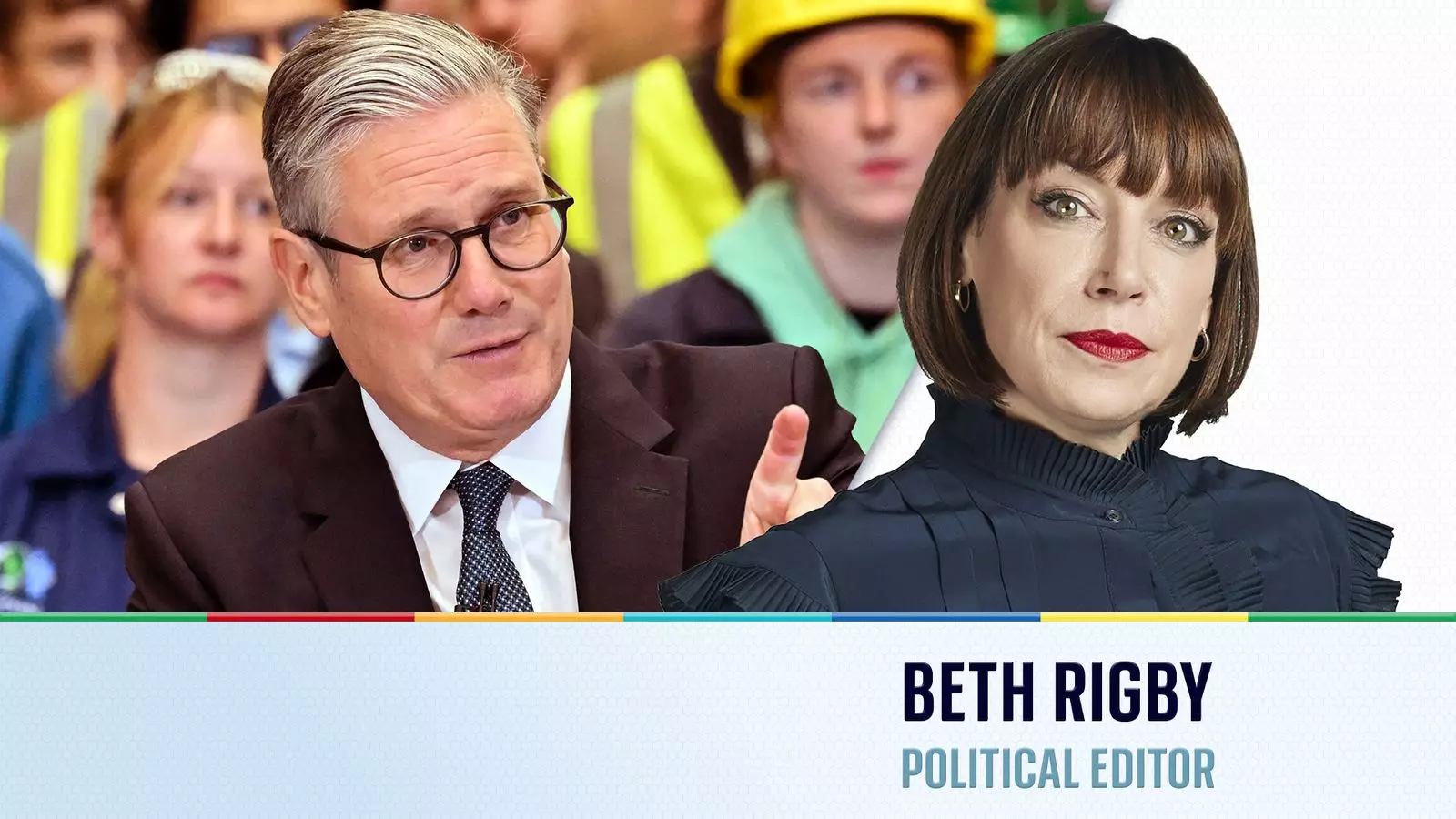In the wake of a turbulent geopolitical landscape, Sir Keir Starmer’s recent declarations foreshadow a potentially seismic shift in Britain’s political and military strategies. Standing at a shipbuilding yard in Glasgow, Starmer framed his government as one prepared to embrace the inevitabilities of conflict, branding the UK as a “warfare-ready state.” This bold statement resonates at a time when national and global tensions feel palpable, yet it raises critical questions about the motivations and implications of such a pivot. Can a nation known for its commitment to social welfare reconcile its increasing militarization? The rhetoric of readiness signals a drastic shift from the post-war ideals epitomized by Clement Attlee, who laid the foundations of Britain’s welfare state, to a precarious focus on defense and aggression.
The Foundation of Contradictions
Starmer’s urgent call for a “war-fighting readiness” raises eyebrows when juxtaposed with his hesitations around delivering on a crucial financial commitment: raising defense spending to 3% of GDP. His assertion that budget increases are contingent upon “economic and fiscal conditions” starkly contrasts with the urgency of his previously enunciated need for enhanced security. This contradiction not only undermines his credibility but also highlights a leadership dilemma—how can one advocate for preparedness while simultaneously sidestepping the financial implications of such a commitment? It seems Starmer is entangled in a web of fiscal pragmatism that hampers his ability to project the assertive leadership Britain ostensibly requires in these times of uncertainty.
The Sticking Plaster Crisis
Starmer’s administration has been characterized by a reluctance to fundamentally address the chronic issues plaguing public services. His claim to abolish “sticking plaster politics,” a phrase denoting superficial fixes rather than substantive solutions, feels hollow as he now appears to achieve public approval by issuing band-aid responses rather than engaging in strategic planning for both defense and welfare. Recent attempts to reconsider cuts to pensioners’ winter fuel allowances and potential policy reversals about benefit caps suggest that Starmer is retreating into a familiar pattern of short-term fixes rather than advocating for a coherent vision of governance. This inconsistent approach could alienate his support among voters seeking authenticity and dependable leadership.
The Hard Choices Ahead
With a looming requirement to secure an additional £13 billion for defense, Starmer’s administration faces a fateful juncture. Will he choose to prioritize military funding at the expense of welfare programs, or will he muster the political will to challenge his party’s legacy of social responsibility? The political landscape is fraught with risk, and every decision taken in the name of security will inevitably have repercussions on public welfare—a reality that could result in disillusionment among his core supporters. The dilemma of making hard choices between a well-funded military versus a robust welfare system is no longer a theoretical debate; it is a pressing issue that demands clarity from the prime minister.
The Specter of Public Discontent
Moreover, Starmer’s timorousness in addressing these questions can only exacerbate public discontent. The echoing despair from local election results serves as a stark reminder of the unrelenting scrutiny faced by the Labour leadership. In a time when citizens yearn for decisive and principled leadership, the unease stemming from contradictory positions threatens to drive away the very electorate that his administration aims to engage. If Starmer desires to lead a nation verging on war readiness, he must also recognize that public trust hinges on his ability to harmonize this stance with a commitment to tackle social inequities.
The dichotomy of Starmer’s ambition—to transform the UK into a powerful military state while grappling with the fundamental principles of welfare—poses a fundamental question: Can he reconcile a burgeoning warfare readiness with a just social architecture? The answer to this question not only shapes the political future of his leadership but also reflects on the broader societal values of the nation. As the world watches, the choices made in these turbulent times could define the trajectory of British policy for a generation.



Leave a Reply